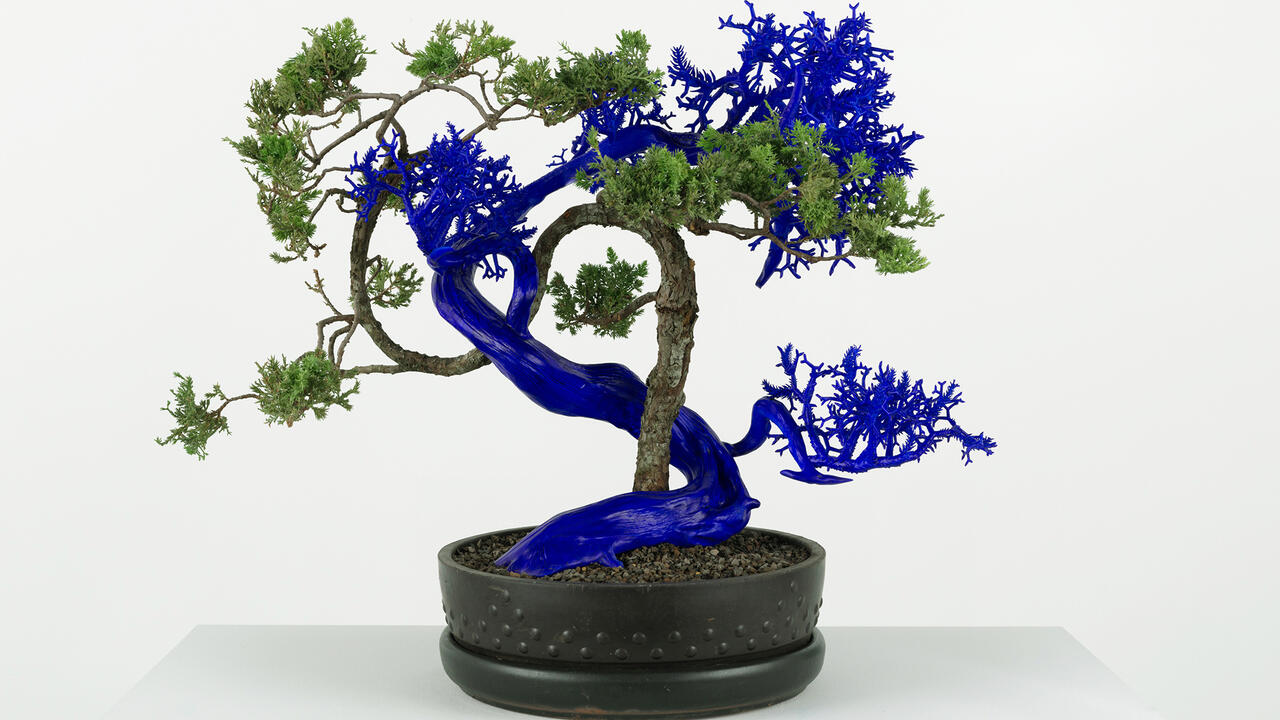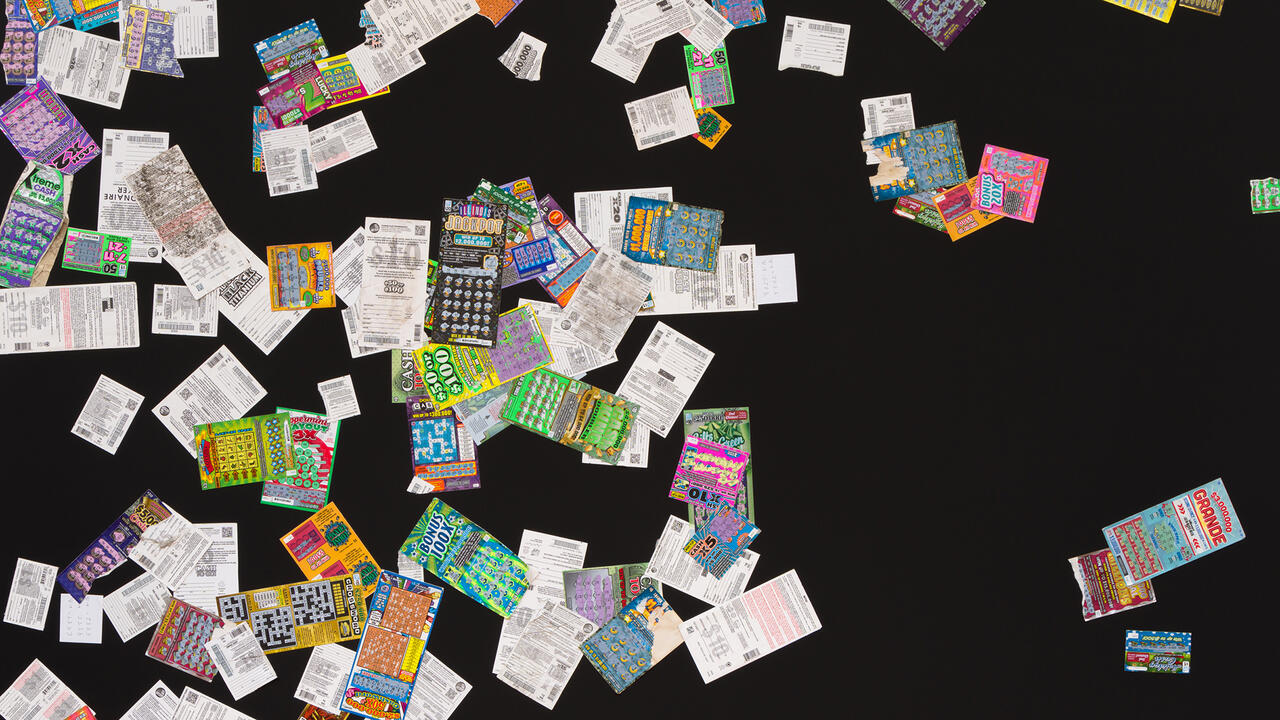Michel Gondry
Deitch Projects, New York, USA
Deitch Projects, New York, USA

The use of the imagination to derail reality is the filmmaker Michel Gondry’s favourite theme. In Eternal Sunshine of the Spotless Mind (2004) a couple break up and undergo brain surgery to wipe their memories clean of each other. In The Science of Sleep (2006) the main character chooses to live in the surety of his dreams rather than in the uncertainty of his day-to-day life. And so to his latest film, Be Kind Rewind (2008), in which he imagines two video shop workers accidentally erasing all the cassettes in their shop and being forced to remake them in a nearby junkyard. With typical hand-crafted brilliance Gondry re-imagines Ghostbusters (1984) and Boyz n the Hood (1991) using tinsel for lasers and pizzas for bloodstains. The film is a nostalgic cry for an analogue age, a return to the technology of childhood (and the childhood of technology). If the will is there, Gondry seems to suggest, one does not need to be a Hollywood impresario to have fun making films. The paradox of this is that Gondry is just such a being himself.
Gondry’s show of the same name at Deitch Projects might have been seen as a response to this conundrum. It is not the first time that he has sought a physical corollary to his films. At the time The Science of Sleep was released, an exhibition displaying ‘sculpture and creepy pathological little gifts’ from the film was also shown at Deitch. Some saw the exhibiting of props and set décor in a gallery as dubious, but Gondry’s creations generally managed to stand on their own as artefacts of the imagination. The ‘Be Kind Rewind’ show was significantly different but was as likely to elicit similar mutterings from those wondering if this is art, advertising or something else entirely.
The Deitch gallery had been turned into a film studio in miniature, divided into film sets and prop rooms, which visitors were encouraged to use to shoot their own films. The sets included a back alley, a doctor’s office, a forest and the interior of a train, complete with rolling countryside. Props ran from household items and gynaecological equipment to abstruse scientific instruments and charity-shop costumes. Digital cameras were on loan, and detailed instructions were pinned to the walls to aid the filmmaking process. Since there were no editing facilities, filming in sequence was the only way to go. Gondry hoped that within two hours anyone could create a decent film. But the quality of the finished project was rather beside the point. The message of Be Kind Rewind – both the film and the show – is that it is in the filmmaking process, the camaraderie of the camera, that joy is to be found. It is the act of creation, rather than the finished product, that is sought; the film comes second to the process.
It is easy to accuse Gondry of being disingenuous. After all, he is an Oscar-winning director, Be Kind Rewind stars the well-known actors Jack Black and Mos Def, and the film’s budget was some $20 million. This, one could sniff, is hardly the guerrilla filmmaking he seems to be espousing. Yet the fact that this is big Hollywood acting small is hardly the point. Gondry is pushing a propaganda of the imagination, and, as in his films, inconsistencies and contradictions are unimportant. Gondry is a filmmaker whose greatest effect is to produce enthusiasm, carrying the viewer along on a wave of possibility. Who cares if he’s not exactly practising what he preaches?
Nevertheless, the show at Deitch is problematic. After all, is such a show necessary when a quick trip to YouTube will reveal countless films made in exactly the guerrilla spirit Gondry seems to be trying to foster? The revolution has already been televised. Similarly, while the aim of the show is admirable, the format is strangely dictatorial. The heavily detailed instructions on how to plan and plot your film veer from the playful to the pedantic. Indeed the show can, at times, seem like an anxious theme park of the imagination – complete with queues. The filmmaking process, rather than being spontaneous, seems over-controlled, with the viewer being herded along by a pleasant but no less overbearing Big Brother.
Or should that be big brother? Gondry’s films, as with the best of childhood games, sweep one up in their creative process. Here at Deitch there is the possibility of joining the game in person. But as with all older siblings, you have to play by their rules.





















